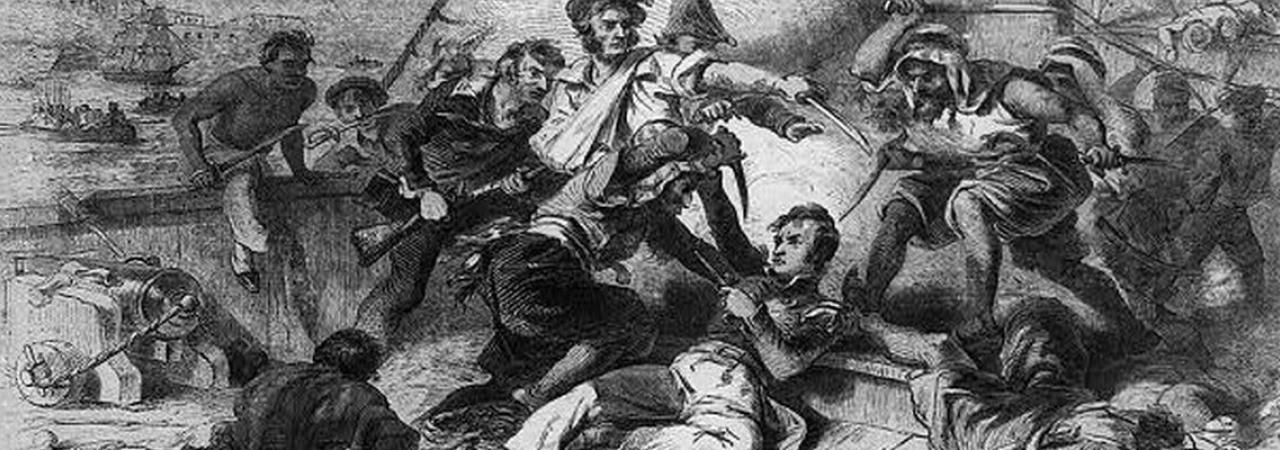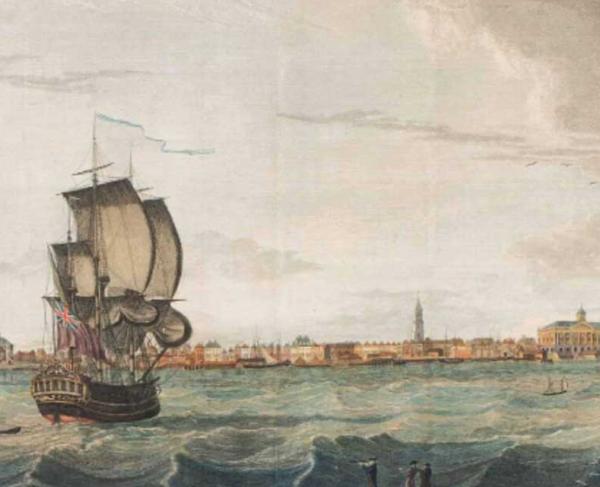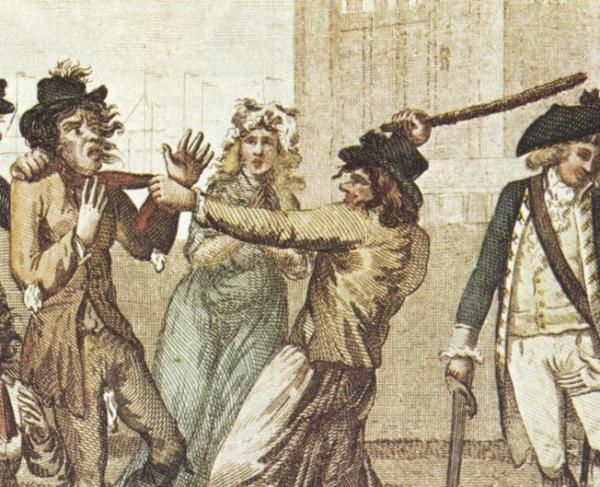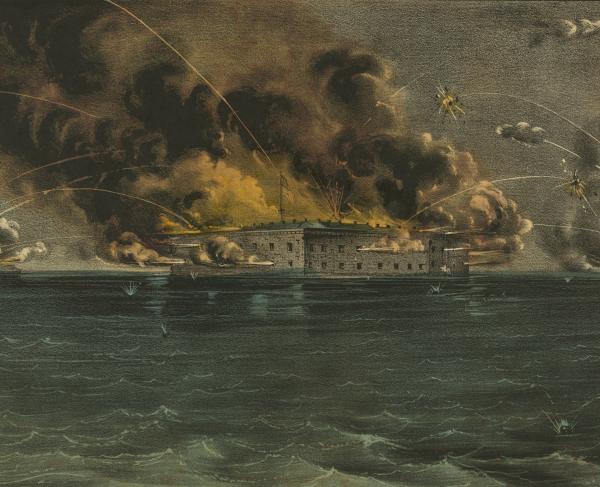The Barbary Wars

On a late February morning in 1804, Lord Horatio Nelson, busy besieging the French Mediterranean port of Toulon, heard some news about a conflict to the south between the Barbary pirates of Tripoli and a group of American seamen. The way he heard it, the pirates had managed to get their hands on an American frigate, the USS Philadelphia, the previous October, capturing and enslaving most of the crew. Those that did escape went into hiding, but instead of disappearing, they returned to Tripoli harbor where the ship was kept disguised as locals, snuck aboard in the middle of the night, killed the guards watching over it, and setting her alight and making their escape, preventing its use by the enemy without losing a single man. Upon hearing this news, Lord Nelson, perhaps the most famous naval military figure in history, simply declared the American’s feat “the most bold and daring act of the Age.” He was not the only figure to heap praise upon the American Navy. Pope Pius VII, too, praised the Americans and their leader, Captain Stephen Decatur, stating, “The United States, though in their infancy, had done more to humble and humiliate the anti-Christian barbarians on the African coast in one night than all the European states had done for a long period of time.” But why was the American Navy off the coast of North Africa in the first place, to the point where these pirates could capture one of their frigates, and why did their war against these pirates carry such excitement in a Europe in the middle of the Napoleonic Wars?

Piracy had long been a major problem for sailors on the Mediterranean. The Roman statesmen and general Julius Caesar had famously been kidnapped by pirates and held for ransom once. But from the 15th to the 19th centuries, the Barbary Corsairs plagued both the southern coastlines and the minds of Europeans. Labelled as such for their shared homeland on the North African (Barbary) coast, particularly the ports of Tunis, Algiers and Tripoli, these seafarers never really operated as a single organized group. A diverse ethnic mix of Turks, Arabs and Berbers, what they shared was the toleration, and often tacit endorsement of the local authorities, typically autonomous beys (Turkish for “Lord”) that held nominal fealty to the Ottoman Empire. This was because, as opposed to the common image of piracy, the Corsairs played an important role in the North African and Ottoman economy, particularly the slave trade. They did not go after merchants’ goods or hunt for buried treasure. Instead, using slightly antiquated, oar-powered galleys packed with as many armed men as possible, the pirates targeted undefended ships and coastal settlements and held any non-Muslims they could find for ransom. If a ransom was not paid in time, the unfortunate victims were sold at local slave markets, or at larger ones in Istanbul. Those even less lucky were subjected to the horrendous conditions of a galley slave. European states frequently directed their navies to clear the coasts of piracy, which only worked temporarily, and found that diplomacy and tribute to the beys in charge to be a less costly solution.
While under British control, American merchants plying the waters of the Mediterranean had protection from piracy under this very sort of agreement, but that changed after winning independence in 1783. While the United States had made some diplomatic inroads with Mediterranean states, particularly Morocco, the rulers of Tunis, Algiers, and Tripoli proved much more quarrelsome. President Thomas Jefferson, despite previous objections to a professional navy, now attempted to use it to cow the pirates into submission, but the small squadron he sent into the Mediterranean had only four ships, not nearly large enough to pose a threat, though they did skirmish successfully without casualties. Meanwhile, the ruler of Tripoli, Yusuf Karamanli, declared war against the United States shortly, and the U.S. Navy began a blockade of the city aided by a Swedish flotilla. It was during this blockade that a group of pirates surrounded and captured the Philadelphia, before Decatur denied them their prize a few months later. The war continued indecisively just outside Tripoli Harbor until the Spring of 1805. In late April, a small group of U.S. Marines landed in Alexandria, Egypt, hired a few hundred Greek, Arab and Turkish mercenaries and began a long march towards the town of Derna, where they fought and routed a defensive force of 4,000 with the aid of naval bombardment. Hearing of the defeat, Karamanli sued for peace and brought the First Barbary War to a close, promising to release all prisoners of war and refrain for antagonizing American merchants further.

Peace in the Mediterranean did not last, however. While the Americans were busy with the War of 1812 and the rest of Europe busy with Napoleon Bonaparte, Barbary pirates began attacking American and European vessels once again. President James Madison authorized Stephen Decatur, now commodore, to set sail for the Mediterranean and bring the ruler of Algiers to heel with ten warships under his command in the May of 1815. Decatur fought two battles with the pirates off the coast of Spain, both of which were overwhelming American victories and allowed him to capture almost 500 prisoners. The Bey of Algiers, now facing pressure from both Britain and the Netherlands as well as the United States, surrendered to Decatur.
North African piracy proved to be a difficult problem until 1830, when French conquest and colonization of the region put an end to the issue for good. For America, the Barbary Wars were minor conflicts compared to the contemporary wars in Europe and America at the time but proved to be an important proving ground for the United States Navy. William Bainbridge, Stephen Decatur and Oliver Hazzard Perry all saw some of their first action in the Mediterranean, which proved to be valuable experience in the later War of 1812. More broadly, the wars were a sign that the young nation could maintain its independence in the truest sense, managing its own foreign policy and successfully defending its own interests against outside aggression.


